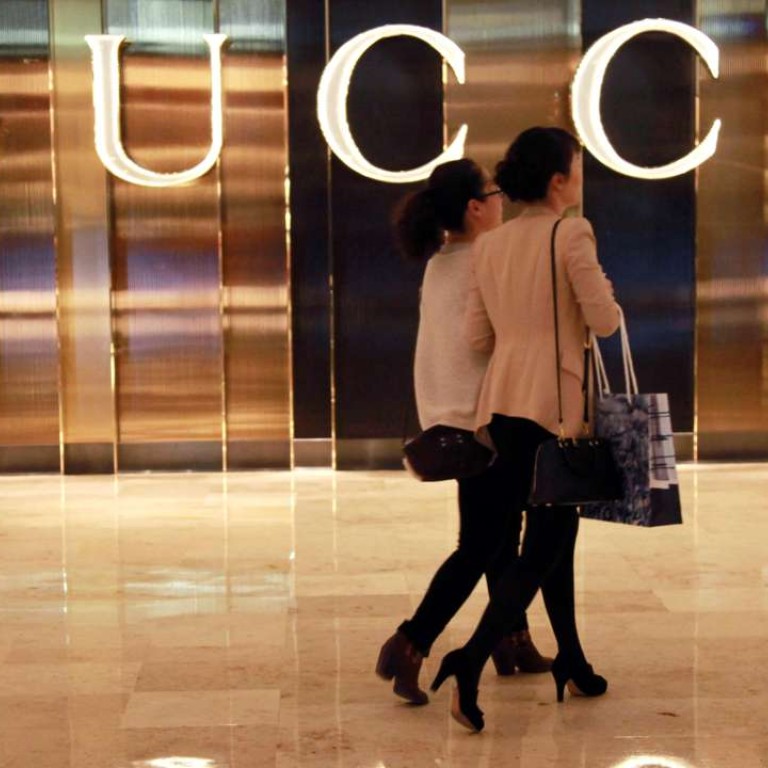
Millennials’ (unhealthy?) appetite for debt spurs Chinese consumer financing boom
Roland Berger predicts country’s consumer-credit market to triple to 15 trillion yuan within four years
Just a year into joining a global film production firm in Beijing, 25-year-old Serena Nie has become a way-more-frequent user of her Visa card than her parents.
They were brought up in the Maoist era when spending, not saving, was viewed as a bourgeois pastime that should be rejected by the masses.
With a monthly salary of just over 7,000 yuan, Nie buys her overseas travel, her Italian fine dining, and her classy French lipsticks all with her credit card.
Her flexible friend, she says, is in her wallet everywhere she goes.
“It would be a hard life without a credit card,”she says.
Nie’s love affair with borrowing for the best things in life is becoming all-too-common among China’s young urban-dwellers.
And as China’s urban millennials such as Nie continue to borrow money to fund their increasingly modern lifestyles, the country’s retailers – both online and traditional outlets – are now banking on a booming consumer-credit market that is projected by the Munich-based management consultancy Roland Berger to triple to 15 trillion yuan within four years.
It would be a hard life without a credit card
Unlike older generations, who built up massive savings but led humble lives on the way to China becoming an economic superpower, this growing army of free spenders appears to have abandoned the older cultural taboos to become the very core of the country’s burgeoning consumer-credit landscape.
“Young people are growing up in a more prosperous China, and that has unleashed a higher sense of financial security, higher life expectations, and a willingness to buy pricey items,” said Rebecca Fu, Roland Berger’s partner of management consultancy
Her firm predicts China’s non-housing consumer-credit market will swell at an annual compound rate of 26 per cent, pushing personal debt levels to 15 trillion yuan by 2020, from nearly 5 trillion yuan in 2015.

Traditional Confucian teachings encourage value and thrift, self-discipline and staying away from extravagance, while under Maoism, people were also taught to view taking on debt as a shameful indicator of living beyond your means.
The mix of social and political dynamics of the past 40 years has translated into an astonishingly high-savings rate, which has actually left the country’s consumer credit market still remarkably undersized compared with other major economies.
According to data compiled by financial information provider Wind, just a fifth of consumer spending in China was financed by borrowing in 2015, far below the 41 per cent in South Korea, and 28 per cent in the United States.
“With the ‘Generation Y’ on track to become the key driver of consumption in China, and their growing confidence in income growth encouraging more of a ‘borrow today, pay tomorrow’ attitude, the consumer finance market in China is only poised to flourish,” Fu said.
This trend has exacerbated Chinese e-commerce titans Alibaba and JD.com to expand fast into consumer finance.
Ant Financial Services Group, which operates Alibaba’s answer to PayPal with over 450 million annual active users, says customers who bought less than 1,000 yuan worth of products a month online, bought 50 per cent more after being offered credit lines through the company’spay-by-credit service Ant Check Later (formerly known as Huabei). Alibaba is the owner of the South China Morning Post.
Offline (traditional high street) retailers face a dilemma as to whether to shift their focus onto consumer credit services
Rival JD.com says its Baitiao personal loan and instalment service gives credit quota to consumers, including students, to motivate them to shop more frequently, adding that its monthly orders surged by 33 per cent after launching in 2014.
“The huge sum of consumer data collected through a myriad of online transactions has helped e-commerce companies screen out those with bad credit history more easily,”said Pu Dongjun, an analyst with Changjiang Securities.
“While offline (traditional high street) retailers face a dilemma as to whether to shift their focus onto consumer credit services.”
Branching out into the thriving consumer credit market offers a rare glimpse of hope for China’s embattled shopping outlets, meanwhile, as they attempt to lure back and cash in on the large-spending Chinese millennials by lending to them first.
Wang Jianlin, China’s richest man who owns the country’s biggest property-and-entertainment conglomerate, Wanda Group, announced in 2015 that customers were now able to make purchases at his Wanda Plaza shopping complexes on credit, as part of the transformation of his property empire.
“On the one hand, consumer finance can spur spending, on the other, retailers can reap the rewards of financial services’ fattened profit margins,”said Roland Berger’s Fu.
Suning, China’s largest electrical appliance retailer, mapped out its consumer finance ambitions in 2014 in a joint-venture in partnership with Bank of Nanjing and BNP Paribas to offer credit lines to customers at its hundreds of outlets across China.
However, experts say they have concerns over the flawed risk-control mechanisms adopted by many retailers-turned lenders, as the loosely regulated and still-immature financiers might well give birth to a new generation of young Chinese consumers falling deeper into debt.
“As regulations in the mainland are still evolving, consumers need to receive personal finance education,”said City University associate professor Dr Li Kui-wai.
“Otherwise they can easily become overspenders and find their finances out of control.”

